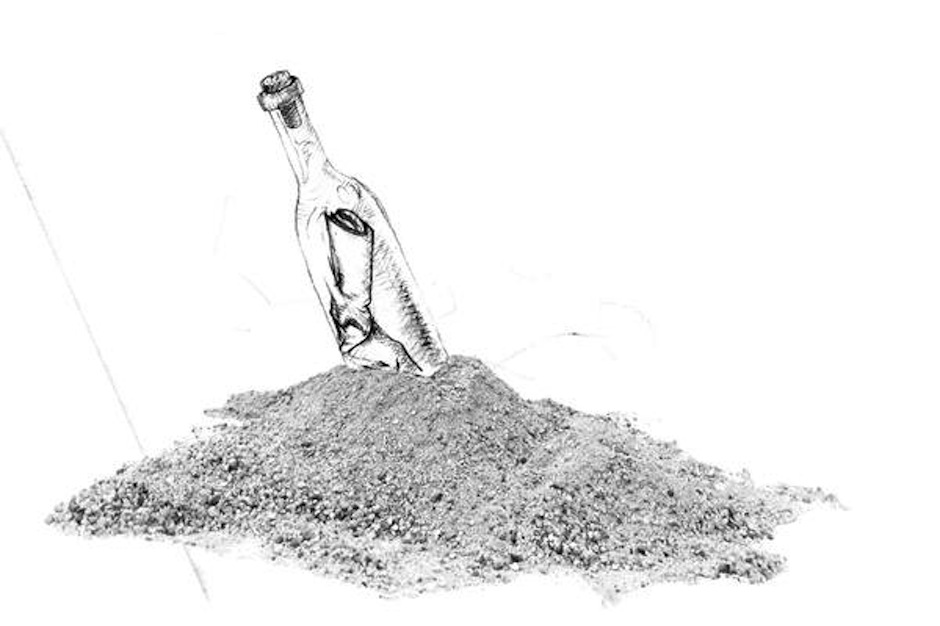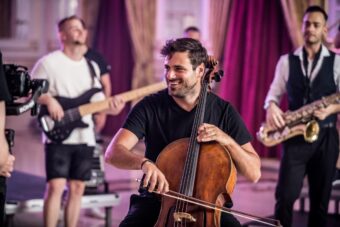Chance the Rapper and his band the Social Experiment finally released their long-anticipated full-length Surf on Thursday night. The release boasts an incredibly star-studded crew of guests, including R&B luminaries like Erykah Badu, Jeremih and Janelle Monaé, current rap stars like J. Cole and Big Sean, and outright icons like Busta Rhymes.
But Chance ultimately made the democratic decision to leave even these high-profile features off the track list of the record, and even ceded the lead billing to trumpeter Nico Segal, who records under the name Donnie Trumpet. At the moment of release, the only way to discern the involvement of the high-profile guests was to check the composers field in the iTunes info of each track, where everyone’s names were presented democratically. Surf is unequivocally a team effort, including contributions from a few lesser-known Chicago-based vocalists Eryn Allen Kane, Jamila Woods, and Noname Gypsy.
Kane is credited on five of Surf‘s tracks and also recently worked on Prince’s protest song “Baltimore” (“He took me under his beautiful, tiny wing” she says of that experience). Noname is the rapper born Fatimah Warner, who contributes a verse and a chorus to “Warm Enough”—and previously lent a dizzy verse to Chance’s Acid Rap standout “Lost”. Jamila Woods is a poet and singer who lent her pipes to “Questions” and the sunny-eyed hook of “Sunday Candy.” All three are longtime friends of Chance and co., so SPIN took the opportunity to catch each of them on the phone to talk about the sessions that spawned the record.
How did you all first meet the members of the Social Experiment?
Eryn Allen Kane: That’s a funny story. I was a Red Bull girl in Chicago, driving around in these trucks and giving away free Red Bull all around the city. I was doing that and going to Columbia College and Chance would always come up to me and tell me he rapped. I started making music with Chance and Peter [Cottontale, the Social Experiment’s resident producer] last year.
Jamila Woods: I have a band called M&O. We were working on our first album in 2011 or 2012. We were looking for people to collaborate with and I met Chance through a Young Chicago Authors poetry slam. He and Nico were in the circle of friends I had from YCA. Chance would come through and he was already Chicago famous. I didn’t have his number, but I asked a friend because I had a song that’d be really great for his voice. It was pretty much the same with Nico. He was in a rap trio with Noname and was always wearing around his trumpet. He still pretty much always carries his trumpet to this day.
Noname Gypsy: I used to go to a poetry workshop in the back of the Harold Washington Library and we made an open mic. Artists and rappers came through. Chance came and did really hot bars and we became friends. Through that we met Nico and a bunch of other folk. We’d all just stand around and loiter outside the library mostly. So I started freestyling and making my own music. Through that there’s always been a culture of collaborating.
How did you get involved with the making of Surf?
EAK: We didn’t start collaborating until a couple years later. We all have the same friends. Peter asked me to vocally arrange a song and do this or that. It evolved into me being in the studio with them all the time. And then I started working on Surf and then it was “Come in tomorrow… and then the next day.”
JW: Nico moved to L.A. and during that time there was this conversation about producing his own voice as a producer or instrumentalist or a trumpet player. It’s a revolutionary act, to have a trumpet player having their own project. My bandmate Owen and I went out to L.A. to visit in September. We’d always just wake up at 1 p.m. and then stay in the studio until the wee hours of the morning.
NG: When they were all back in town from tour they were rehearsing and I was there. Nico had the main loop for “Warm Enough” on his laptop. I was just downstairs writing to the loop and I ended up writing a chorus. Nico loved it. It was super spur of the moment.
What were the sessions you were involved with like?
JW: For “Questions,” Nico was just playing me beats in his living room. I started writing to it and he said, “Let’s record it right now.” He had his laptop and his little SM7 microphone and we did it, and those were the takes that ended up on the final version. We played around with re-recording it but it had a cool sound that first day. When I was leaving he gave me a bunch of other beats they were thinking of and one was called “Sunday Candy.” I used that as a prompt and wrote the hook and then he sent it to Chance who put his spin on it. When they were back in Chicago they rented out the CRC Studio. Everyone came through. All of their Chicago people: Eryn, the Oh Mys!, and King Louie. We recorded “Sunday Candy” there and it was different from anything I’d done before. It was like a work party.
NG: It was definitely a work party. You’re just in a space creating with all your homies. It was all the people I came up with, just chilling.
EAK: We’d all just sit around collaborating. It would sometimes be like 15 people in the studio. There’d be some people working on one song in one studio room and then people working on another song in another room. Everything was a big jam session, just recording among friends.
Were you given a lot of freedom with your contributions?
EAK: It depends on the song. On some they’d say what they needed and then on others Peter would ask me, “Eryn, what do you think this should be?” There were other singers there too some days. For “Windows” especially, I think everyone who sang on that came up with their own vocal parts.
JW: On “Windows” there were a bunch of vocalists, so it was comforting knowing that Nico and Peter had a vision. But, I don’t know if you’ve heard this, The Lion King was a big influence for Chance at a different points. On “Windows” it was so much fun. We were just sitting around and making “Circle of Life” vocal sounds. It’d be like, “Okay, that one, and that one, cut the end of that.” It was structured but we still had freedom.
What do you make of the decision not to include any of features on the track list?
NG: To some extent, artists are so about branding. Especially as rappers, it’s like, “People have to know that was me spitting.” Other musicians add all sorts of different sounds and textures to songs and they aren’t necessarily given a feature. So it made me feel more like just another musician adding to the song in a moment. It makes people more interested in the process of the song and the music.
EAK: It’s not something they talked to me about at all. They just said, “We need our friends to help make this.” They would shoot a text to all of our friends and say, “We’re going to be at the studio from this time to this time. It would be great if you can stop by.”
Since the release was such a surprise, have you had a chance to listen to the whole thing yet? What do you make of the whole thing?
NG: One of the things that me and my friend were talking about was that it feels like a movie score. It’s super cinematic and textured and colorful.
EAK: Throughout the entire thing it brings up new conversations. The lyrics are bringing up things, not just monetary or material things, but real issues. And then there will be a song about dancing. It’s so varied. It’s an emotional rollercoaster.
JW: Being a poet and a singer there’s always talk around finding your voice or sound and I think it’s really important to consider this as a Donnie Trumpet and the Social Experiment album. When it’s a rapper’s album or a singer’s album, there’s a tendency to want a text-based or theme-based narrative. Like, “This song’s about where I come from,” or “That one’s about love.” But I think with this album there’s a continuity in the emotions that the music gives me. The instrumentation is the glue that holds the wide variety of subject matter together





